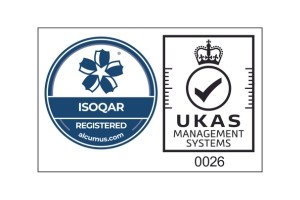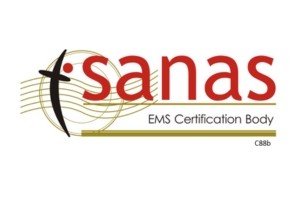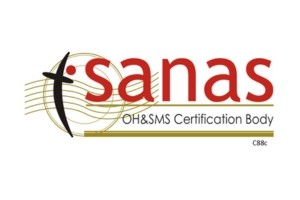Definition of Major and Minor Non-conformances including opportunities for improvements.

Major Non-Conformance:
Based on objective evidence, the absence of, or a significant failure to implement and/or maintain conformance to the requirements of the applicable standard. (i.e. the absence of or failure to implement a complete Management System clause of the standard); or
A situation which would on the basis of available objective evidence, raise significant doubt as to the capability of the Management System to achieve the stated policy and objectives of the customer. Or any high potential legal non-compliance that poses an immediate threat to the organisation or its workers.
Example: If the organisation state in their processes that an Internal System audit be conducted annually, but there were no evidence of such an system audit conducted at all.

Minor Non-Conformance:
Represents either a management system weakness or minor issue that could amount to a major non-conformance if not addressed. Each minor NC should be considered for potential improvement and to further investigate any system weaknesses for possible inclusion in the corrective action process. When a process is not entirely followed as per the internal procedures or as to the standards requirements.
Example: The management of waste is not entirely controlled as to the organisations procedures, some waste bins were not properly demarcated to indicate the waste to be contained.
Opportunity for improvement:
An Observations that cannot be directly referenced to either a non-conformance of either the requirements of the standard and/or a requirement in the organization’s system, such as a documented procedure/work instruction/process chart, documented objective, etc.; will remain an observations.
An OFI (observation for improvement) is presented as informational with no response required. This observation cannot be directly referenced to the non-conformance of a requirement, however, these could be verified for actions taken upon the next audit. These should be treated as non-conformances for they might amount to non-conformances if not treated accordingly. OFI’s generally address two types of incidents – Negative situations which are visible to the auditor, but can not be related to a requirement in the standard or an organization’s documentation or activities observed by the auditor during an audit that could, if reported, enhance an organization’s operating efficiency. OFI’s in some cases come from an auditor’s experience in your industry. Each auditor brings a unique perspective on business systems and could add value that might augment your business system. It is optional whether you decide to follow through with the OFI.
Example: Although the organisation did identify Occupational Health and Safety objectives, the organisation could establish an objective related to the legal compliance rating as to the latest OH&S legal compliance report.

Suggestions for Writing Non-Conformance’s:
When writing a non-conformance ensure the following.
- Write clearly
- Address everything that is required
- Keep the non-conformance statement general to highlight the specific issue
- Write the more specific details in the objective evidence area only
When it comes to writing an effective NCR, there are a few tips that you will want to keep in mind to get your point across clearly and gain the best results afterward.
First of all, you will want to write clearly so that the auditee will be aware of the issue that has occurred. Along with addressing everything that is required in the report as mentioned in the list above, you will want to keep the non-conformance statement as general as possible.
Even though the report itself should be very detailed, you should write the most specific information in the area that is designated for the objective evidence.
Immediate action upon findings:
While it is important to avoid nonconformity in a business at all costs, there will be some instances where mistakes can happen and rules can be broken for whatever reason.
Instead of dwelling on the fact that an employee or certain area of the business is not currently conforming to the standards or company requirements, it is important to immediately come up with a plan and take action to fix the issue.
Join our mailing list to receive upcoming posts: http://www.isoqar.co.za/





